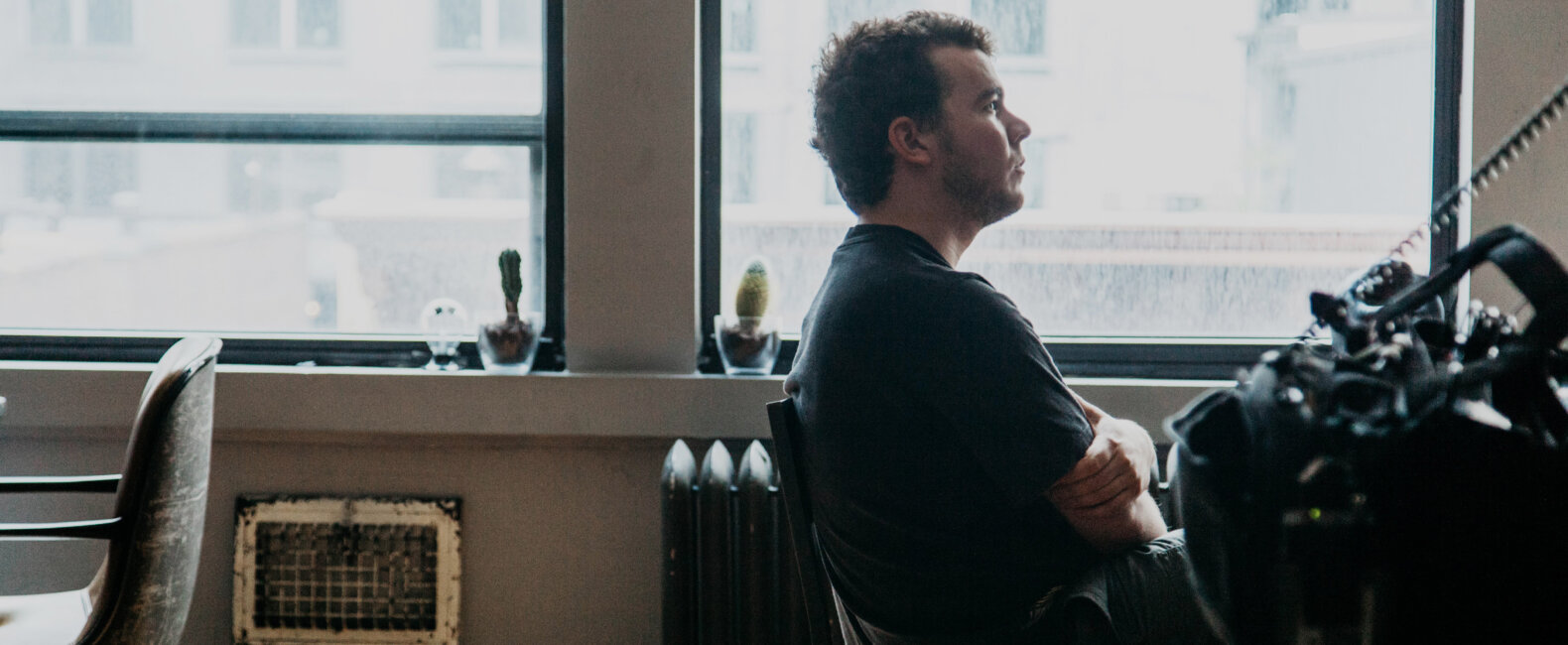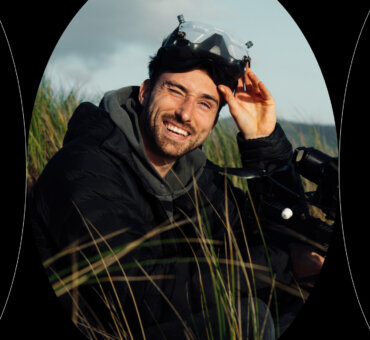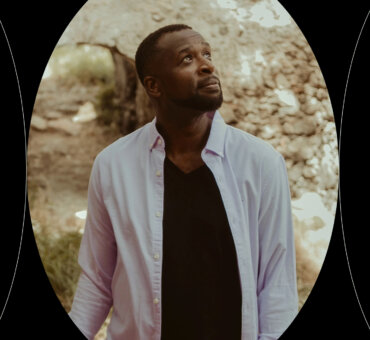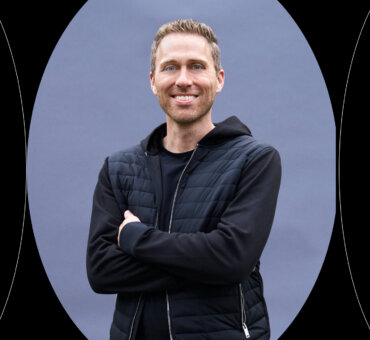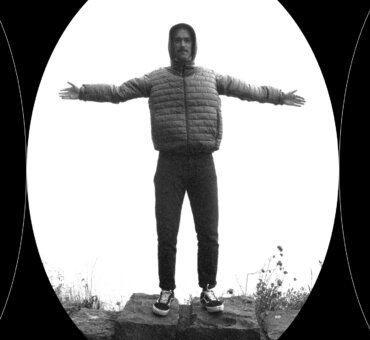The question is not whether filmmaking is stressful. It’s how you’re going to deal with the stress when it inevitably comes your way. Stress is a physiological survival mechanism. It’s our body’s way of telling us to run away from dinosaurs and hide in a cave. But it’s also philosophical ⎯ it’s something we can overcome. Some of the most productive, well-respected filmmakers in the world deal with stress on a daily basis. And they’ve learned how to put it in its place.
“I feel stress a pretty good amount of the time,” Jonathan Bregel, director at Variable, told us. “It comes with the territory. Since filmmaking involves so many relationships and dynamics, it’s just inevitable. The trick is to be aware of it and know how to manage it.”
One of Jon’s tricks has been building up a company and community around himself that allows him to not only manage his stress, but to push himself into new and dangerous creative territory. “Without people to connect and collaborate with, I’d probably be dead.”
We recently spoke with Jon about his career, his company, and his strategies for dealing with stress.

I believe it’s important to build a sense of community with the people you work with. Then it becomes this organic team process to burst through the stressful situation.
Musicbed: Was there a moment when you realized making films might be really hard?
Well, that’s another thing I don’t think about very much: whether or not something is hard. I think about whether it’s stressful. I’m very sensitive to stress. It’s this deep-rooted intuitive thing where I start to feel stress bubbling to the surface from afar. This all goes back to my childhood and how I was raised by very loving, supportive, and communicative parents. It has really shaped me as a person, and shaped a lot of the way I work at Variable. A lot of times your level of stress depends on the people you’re working with. If I worked with someone who treated me poorly, that’s when I’d start to think, Man, this is hard.
Is there ever a value to stress?
That’s a great question because there can be a tremendous value to stress. It can let you know you’re on the right path, that you’re pushing past your comfort zone. I feel stress a pretty good amount of the time. It comes with the territory. Since filmmaking involves so many relationships and dynamics, it’s just inevitable. The trick is to be aware of it and know how to manage it. If you’re not careful, it can be corrosive. I am constantly forcing myself to step out of that room and take deep breaths. Otherwise, it can bubble up and explode. That’s not sustainable. That’s why I believe it’s important to build a sense of community with the people you work with. Then it becomes this organic team process to burst through the stressful situation.
Is that why you helped start Variable?
[Laughs] The beginning of Variable was just Tyler Ginter, Khalid Mohtaseb, and I talking about how we could create work together as friends. We were all at different points in our careers, and more than a little exhausted and burned out from difficult relationships and experiences. Personally, the question for me was, “How do I sustain a life where I’m not miserable every day within an industry where I see so much potential?”
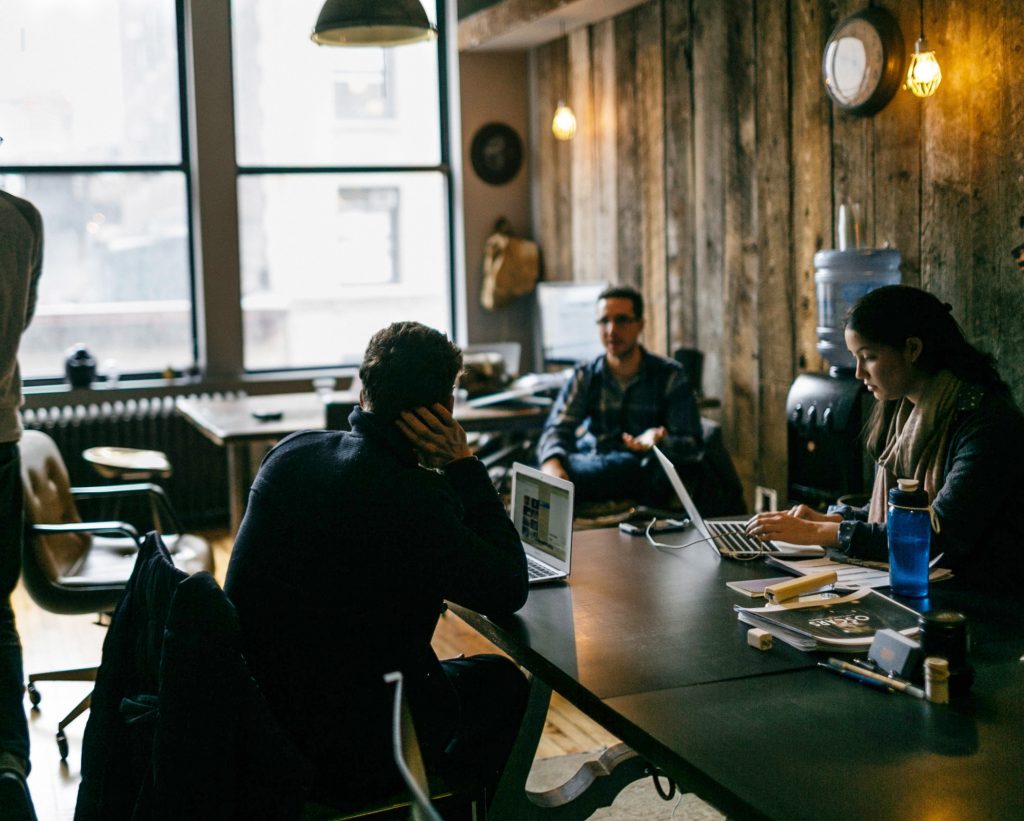
[Committing to a team] forces you to love those who are fundamentally different from you, which keeps you humble, fresh, and open to new ways of thinking.
Did you guys make an intentional decision to do things differently?
For us at Variable, it’s about doing the things that come most naturally to us, while continuing to push ourselves to do better. We wanted to be with our friends and create work with our friends. The intention was to do things the way we like to do them. And maybe that happens to be different than other production companies or people, but that was never the point.
You weren’t trying to be “anti-corporate”?
Not at all! There’s no “anti” anything to Variable. We’ve always done what feels right.
With how stressful filmmaking can be, do you ever think about getting out?
About once a month, I’d say. There are a lot of artistic compromises that come with being a young commercial filmmaker. Mostly your ego, pride, and identity. It’s a very challenging dynamic, art and commerce. But I’m fortunate. I don’t believe my sensitive self could survive the politics of this industry without the team we’ve built. They continually humble me. There are eight of us now, and every single person is important. If I didn’t have this team, I’m certain I’d either be living in a cabin in the woods, or I’d be a completely jaded 27-year-old filmmaker. Neither of those options sounds like fun to me.
Another great thing about committing to a team is that you gain access to all of these different perspectives on a daily basis. It forces you to love those who are fundamentally different from you, which keeps you humble, fresh, and open to new ways of thinking. We did a personality test on our team about eight months ago, and we discovered that everybody has a different personality. So you get all of these different colors of life around you all the time, which is good because it’s a frickin’ hurricane of an experience making films, and we want our films to speak to as many people as possible. Without people to connect and collaborate with, I’d probably be dead. [Laughs] I’m not kidding.

It’s important to have deep relationships with friends and family with whom you frequently connect. Without that, it’s very easy to come to a breaking point in this industry.
It can be very dangerous to put all of that pressure on your art form — to have that be what makes you feel connected on this earth. So it’s important to have deep relationships with friends and family with whom you frequently connect. Without that, it’s very easy to come to a breaking point in this industry.
It’s a very primal thing. You need people to connect with. Everybody wants to fit in, you know? Nobody wants to be alone. It goes back to being a child with a frickin’ umbilical cord. We need others to ease our suffering. We crave true connection. The world is a crazy place, and it can be very dangerous for an isolated soul. There’s always going to be something we can stress about. And whether you had great relationships growing up or had no friends at all, we’re all just trying to figure out where we fit.
Learning to manage stress is such an important skill in a creative life. It can make or break you. We love Jon’s solution: to surround himself with a diverse group of friends and collaborators, people who can share the creative weight, ground him in his life and purpose, and give him the confidence to not only overcome his stress but to push himself to new creative heights.















































































